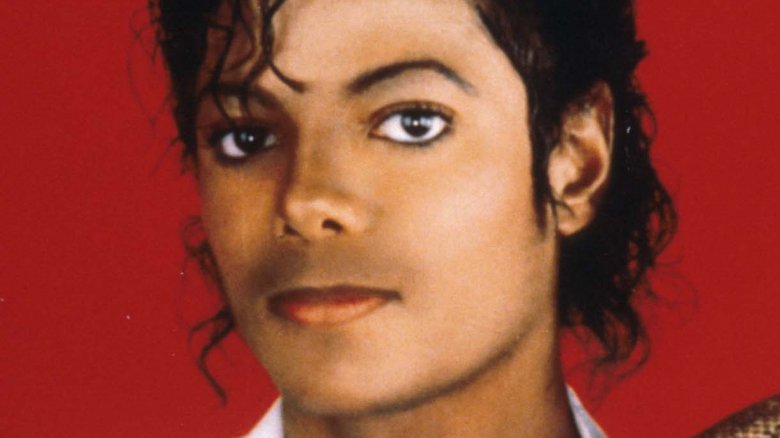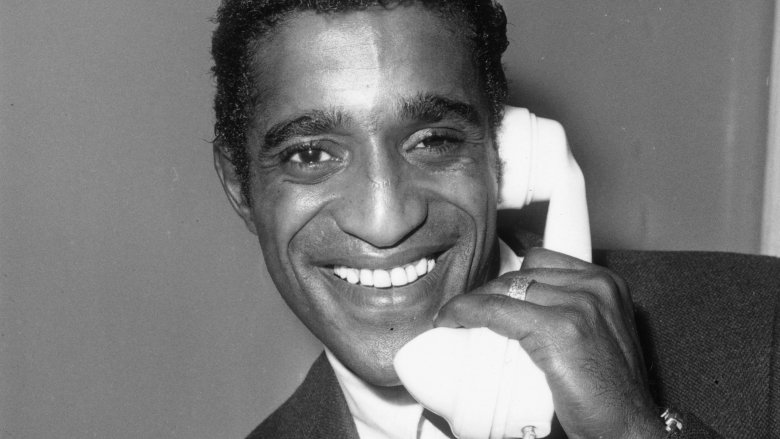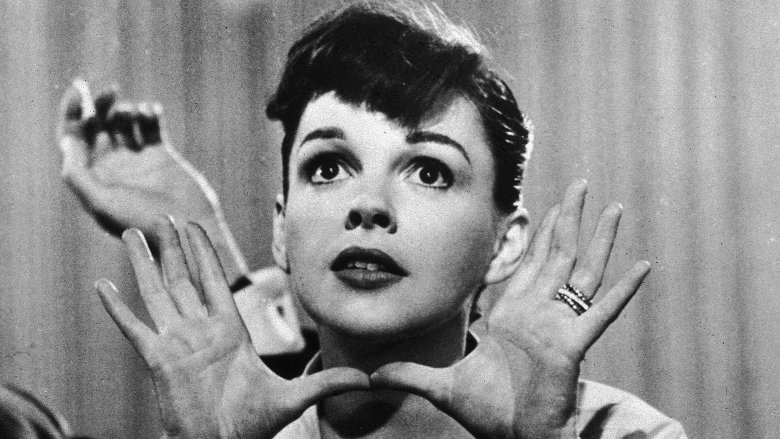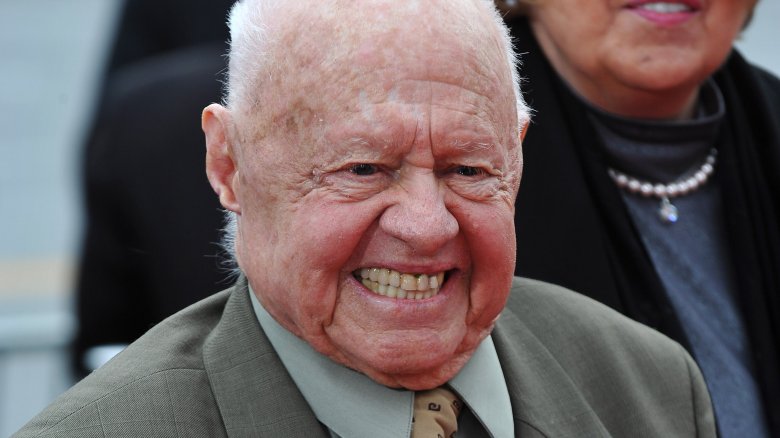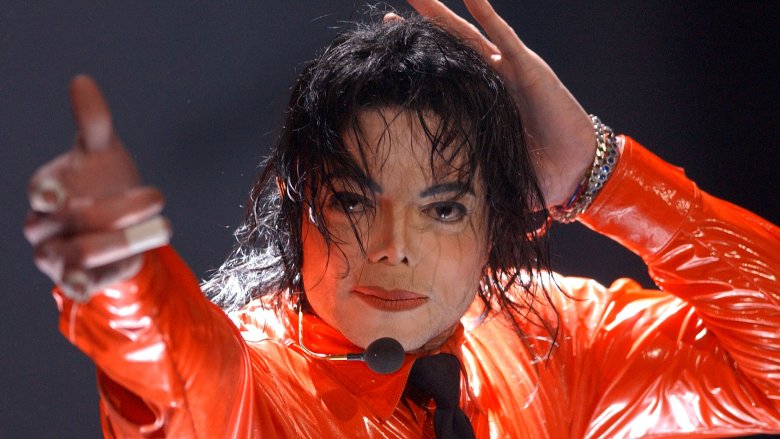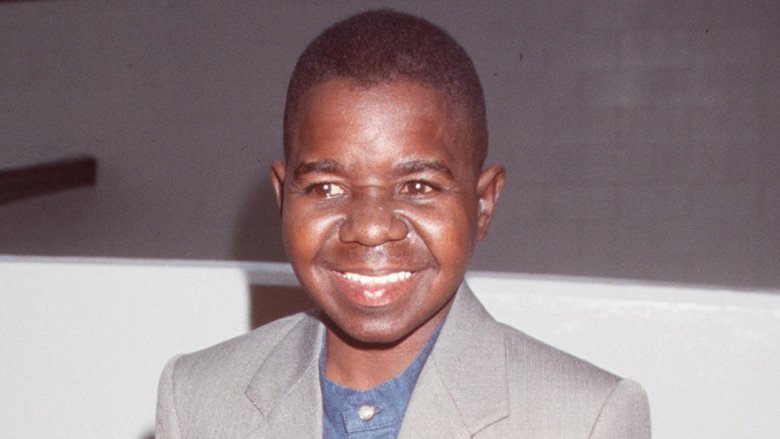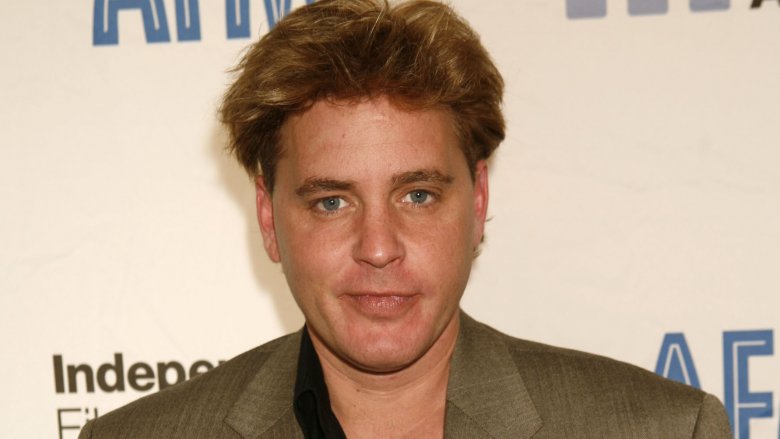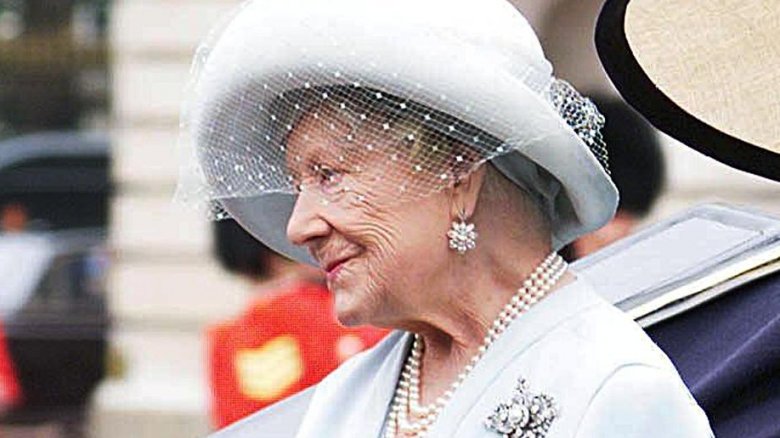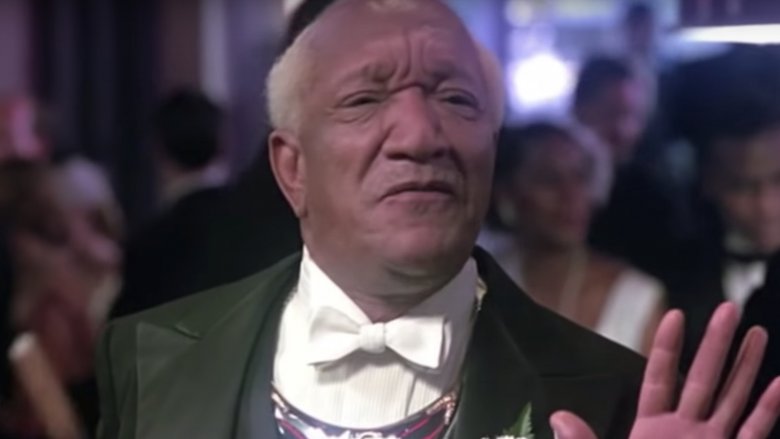Celebs Who Left Behind Massive Amounts Of Debt
Most celebs live luxurious lives in the spotlight. And, along with the adoration of millions of people and swag bags full of free stuff at Hollywood awards shows, certainly the best part of being a famous actor, singer, or comedian is the money. They get paid millions upon millions of dollars to do the things they love and to do the things that they're exceptionally talented at doing. Yes, with all its various perks, it's very good to be rich and famous.
But every now and then, the money apparently gets to be too much for some unfortunate celebrities. Either they think the cash will always flow at a scandalously high rate and they squander it on mansions and cars, or they get swindled out of it by nefarious business managers or family members ... or, sadly, they blow it all on drugs. But really, when we're talking fortunes reaching millions of dollars, who really knows where it all goes? At any rate, there have been several celebrities who blew through fortunes big enough to last multiple lifetimes before their number was up. And once some passed, they left behind not a large bequeathment to loved ones but instead piles of bills and crushing debt.
The 'I Have Nothing' singer lost it all
Singer Whitney Houston brought an R&B edge and gospel-trained pipes to create a signature sound on hits like "How Will I Know" and "I Wanna Dance With Somebody (Who Loves Me)." And then there was the 1992 movie The Bodyguard. The film, in which Houston starred alongside actor Kevin Costner, earned $121.9 million at the box office, but it was the soundtrack that was truly successful. The bestselling album of 1993 (and the bestselling soundtrack ever), the record generated three top 10 hits for Houston — "I Have Nothing," "I'm Every Woman," and "I Will Always Love You," which spent a then-record 14 weeks at no. 1 on Billboard's Hot 100 chart.
CNN estimates Houston moved 170 million albums, singles, and videos in her career, and yet, at the time of her death at age 48 in 2012, she owed her label, Sony Music, tens of millions of dollars. According to music industry veteran and blogger Wayne Rosso (via the New York Daily News and Idolator), Houston signed a $100 million, six-album deal back in 2001... but her subsequent records didn't sell at the pace they had in the '80s and '90s. She took out so many advances and loans from Sony that, by 2012, she was in debt to her employer for roughly $20 million. Rosso wrote that, in order to "start to get royalty checks" for her heirs, Houston would have to posthumously move at least 5 million albums.
He sung about 'The Candy Man' while avoiding the tax man
Sammy Davis, Jr. was a consummate entertainer and the very definition of a triple threat. One of the more famous members of singer Frank Sinatra's well-known "Rat Pack" squad (via the Las Vegas Sun), Davis starred in cool '60s movies like the original Oceans 11 in 1960 and Robin and the Seven Hoods in 1964, sang classic songs like "What Kind of Fool Am I" and the "The Candy Man," and tap-danced his way across screens both big and small. Adding insult to injury for the late singer-actor-dancer's wife, Altovise Davis, when he died in 1990 at the age of 64, was the star's massive accumulation of debt. When he died, Sammy Davis, Jr. had racked up a whopping total of $15 million of debt, according to Page Six.
According to Matt Birkbeck's book Deconstructing Sammy: Music, Money, Madness, and the Mob (via NPR), the Davis family's Beverly Hills home and basically everything in it — including "jewelry, furs, a Rolls-Royce" — were sold off to pay the late singer's bills. But that still wasn't enough, and the IRS pursued Altovise Davis to resolve what her husband owed in back taxes. By 1994, Altovise was living in the home of a family friend, her "last stop before a homeless shelter," with the IRS taking whatever royalties her husband's work brought in.
Zing went the purse strings
Actress Judy Garland boasted formidable talent, starting out as a child star and appearing in classics like The Wizard of Oz before moving on to musicals like Meet Me in St. Louis. She eventually graduated to acting in Oscar-nominated works with more adult fare like the 1954 version of A Star is Born and 1961's Judgment at Nuremberg.
According to her third husband, Sid Luft, in his book Judy and I: My Life with Judy Garland, Garland earned between $12 and $15 million between 1961 and 1966. During this time, she was highly visible, performing as many as 50 concerts a year and starring in The Judy Garland Show on CBS. "But no matter how much she worked, no matter how many concerts she performed or television shows she did," Luft wrote, "she was always in debt." By 1966, she reportedly owed $400,000 to the government and more than $100,000 to various other creditors. The IRS ordered her house to be sold within 90 days and issued a lien to Garland's label, Capitol Records, ordering any income she generated to go to the federal coffers first. Luft said he once got a call from his ex-wife and she admitted, "I'm broke!" She allegedly shared that she didn't even have any food in her home. Garland performed runs of shows at theaters around the country for whatever money she could get, and, by 1969, Garland, still financially ruined, passed away at the age of 47.
Family troubles cost Mickey Rooney big time
Born Joe Yule, Jr., Mickey Rooney became one of Hollywood's top-grossing stars for playing teenager Andy Hardy in 15 movies over a span of nine years. Then Rooney entered the second big phase of his career, starring in a bunch of big screen musicals with fellow former child star Judy Garland. Among them were the likes of Babes on Broadway, Babes in Arms, and Girl Crazy. After serving in World War II, Rooney was eager to stay in the public consciousness and was up for just about anything. He landed his own short-lived TV series The Mickey Rooney Show in 1954, co-starred in the harrowing war movie The Bold and the Brave in 1956, and guest-starred on a number of TV shows in the '50s and '60s. He also portrayed a racist Asian stereotype in 1961's Breakfast at Tiffany's and earned himself an Oscar nomination in 1979 for the movie The Black Stallion.
But Rooney reportedly didn't keep much of his paychecks throughout the years. In 2011, he sued his stepson Chris Aber, claiming elder abuse and theft of his money. And while Rooney won a $2.8 million settlement, Aber reportedly never paid up (via The Hollywood Reporter). After he passed away in 2014, Rooney ultimately left very little behind. According to Radar Online, the famous actor had no assets, and, while his relatives reportedly fought over his will, they had to sell the late star's house in order to pay off creditors.
Andy Gibb's debts were as magnificent as his hair
There was no band more popular in the late '70s than the Bee Gees, who generated one falsetto-powered disco smash after another, including songs like "Jive Talkin'," "Night Fever," and "Stayin' Alive." Arguably the only challenger to the Bee Gees' status as the kings of danceable soft rock in that time was Andy Gibb, the teen idol younger sibling of the Bee Gees' Gibb brothers, Barry, Robin, and Maurice. He placed six songs in the top ten on Billboard's Hot 100, including three no. 1 hits: "I Just Want to Be Your Everything," "(Love Is) Thicker Than Water," and "Shadow Dancing." But when disco declined, Gibb's fortunes suffered. He shifted to Broadway, starring in Joseph and the Amazing Technicolor Dreamcoat, and he co-hosted the music show Solid Gold ... but was fired from both because he frequently didn't show up, as reported by People.
By 1986, Andy Gibb had kicked a long-term drug habit (a reported addiction to cocaine) and moved to Miami, Fla. where his famous older brothers lived, according to People magazine. But by then, any fortune the singer had accumulated had dwindled down to nothing. In October 1987, he filed for bankruptcy, citing $1.5 million in debts, $1 million of which he owed his manager. Just five months later, and mere days after celebrating his 30th birthday, he checked into a hospital with chest pains, and sadly, Andy Gibb died a few hours later from an inflamed heart muscle.
He was the King of Pop and lavish spending
When music icon Michael Jackson suddenly died in 2009, it seemed like the entire world went into mourning. It was the end of an era, and millions were saddened by the loss of the explosively talented little boy who sang and danced his heart out with The Jackson 5 in the early '70s and moonwalked into history in the '80s with Thriller. Jackson's Thriller would become the bestselling original album of all time presumably thanks to its cinematic music videos and remarkable singles including "Beat It," "Billie Jean," and "Human Nature," though the title was later taken over by The Eagles (via Rolling Stone). Grieving fans focused on the good times of Jackson's life and chose to look past the controversial behavior exposed in his latter years, such as him dangling his son Blanket off of a balcony. Not to mention incidents involving Jackson allegedly giving his children wine, which he called "Jesus Juice" (via E! News), and numerous accusations of his alleged predatory crimes against minors, as reported by Rolling Stone.
During the later years of his life, Jackson was also under serious financial strain. With his lavish spending habits and poorly executed business deals and loan agreements, Jackson, by one estimate reported in Billboard, spent as much as $30 million a year more than he brought in. All told, Jackson owed various individuals and institutions about $400 million at the time of his death.
Watchu talkin' 'bout, IRS?
Despite the tragedies and bad luck that befell actor Gary Coleman, no one can take away from him the fact that he was one of a few people who starred in a hit primetime sitcom and Saturday morning cartoon simultaneously. Yep — he played Arnold Jackson, an irascible orphan adopted into a rich family on Diff'rent Strokes from 1978 to 1986 and voiced a helpful angel on the animated series The Gary Coleman Show.
After suing his parents and former manager for swiping his child star money, specifically the funds he earned from starring on the TV hit Diff'rent Strokes, Coleman won $1.3 million in a judgment. Sadly, Coleman's cash would eventually run out and, in 1999, his career was reduced to making TV show and movie cameos and little else. That year, Coleman filed for bankruptcy (via Time). By then, Diff'rent Strokes royalties brought in just around $1,000 a year for Coleman, and his most valuable asset was a $3,000 model train set, according to AOL. Altogether Coleman's debts reportedly totaled $72,000. Amid a slew of legal and relationship problems (not to mention a run to become the governor of California in 2003), Coleman escaped the public eye with a move to Utah. He died at age 42 in 2010, leaving behind few assets besides a house outside of Salt Lake City, as noted by ABC News.
The sorry story of Corey Haim
Truly the '80s was the era of Coreys. Boys named Corey briefly enjoyed superstar status, particularly The Goonies and Stand By Me star Corey Feldman and his frequent collaborator Corey Haim. Together, Coreys Feldman and Haim starred in a number of near-classics: The Lost Boys, License to Drive, and Dream a Little Dream.
As the '90s dawned and new teen idols came along, each Corey adapted. Feldman started dressing like his friend Michael Jackson and starred in B-movie schlock like Rock 'n' Roll High School Forever, while Haim got caught up with drugs. At the time of his death at age 38 in 2010, People reported that Haim had struggled with an addiction to prescription drugs. Not long afterwards, Feldman discussed his friend's tragic end on Larry King Live (via Us Weekly), revealing that Haim had been living month to month in a bargain-rate Los Angeles apartment with his mother and was so broke he "didn't even have a car."
It's unclear how much money Corey Haim had at the time of his passing, although he'd filed for bankruptcy protection back in 1997. At that time, Haim owed at least $200,000 in both state and federal back taxes and, according to E! News, his only assets were an old car, $100 in cash, and residuals worth $7,500.
Racking up a royal debt
At the time of this writing, Queen Elizabeth II is the current monarch of the United Kingdom. Her mother was also named Elizabeth, and she was commonly referred to as "the Queen Mother" for the sake of differentiation. The Queen Mum, as Brits colloquially called her, was once queen herself. Married to King George VI, she watched over England from 1936 to 1952, when her husband died.
It's hard to walk away from the luxurious and indulgent lifestyle of a queen and so the Queen Mother simply didn't. According to a report published by the Daily Mail (via UPI), the elder Elizabeth didn't carry around a wallet of cash or make a personal budget, and she reportedly had virtually no idea how much things actually costed. She thought nothing of ordering up another bottle of fancy champagne... or another race horse... or another priceless work of art. By the time she died in 2002 at the age of 101, her annual income (or more accurately, allowance) totaled $1.3 million a year, more than enough for everyone but a royal to live on. Despite that cash and Queen Elizabeth II and Prince Charles sending her some extra funds to help her along, the Queen Mum was about $14 million in the hole when she passed.
Red Foxx owed big
Redd Foxx revolutionized American comedy. His ribald "party records" in the 1950s were among the first-ever comedy albums, and the celeb predated Roseanne Barr and Jerry Seinfeld as stand-up comics with their own sitcoms, starring as the outspoken junk dealer Fred Sanford on the smash hit Sanford and Son, from 1972 to 1977. That show's most famous bit was when Foxx, as Sanford, faked a heart attack and called out to his long-dead wife, "This is the big one!" Unfortunately, Foxx's previous on-screen antics caused his co-stars on 1991's The Royal Family to think he was only kidding around when he suddenly became seriously ill. "They were rehearsing on the set and clowning around, and Redd was sort of breaking people up when he collapsed," the show's spokesperson Rachel McCallister told the Los Angeles Times. "They all thought he was joking around at first, and then they called the paramedics."
It really was the big one, as Foxx died of a heart attack. And he died owing $3.6 million in back taxes. His estate wasn't worth much at the time, and so it fell to John Cahill, a public administrator of Clark County, Nev., to get the government what it was owed. After selling off the rights to Foxx's images for use in media and merchandise, as late as 2010, Cahill was still trying to pay down Foxx's tax bill with a plan to sell the rights to make a movie about Foxx's life story.

